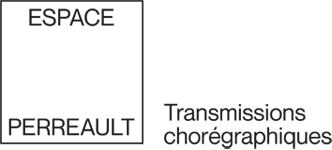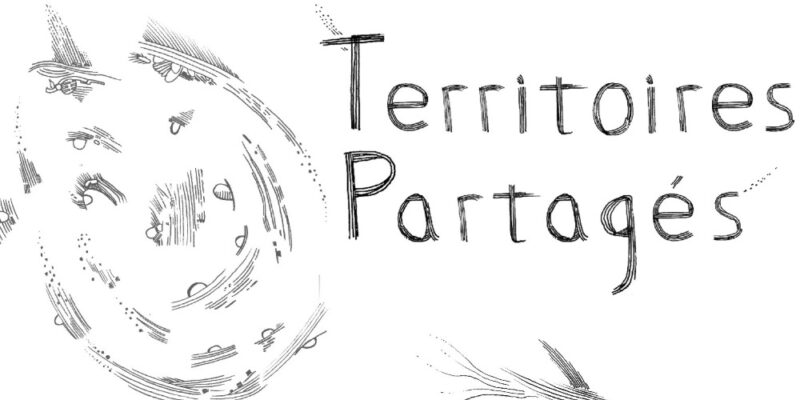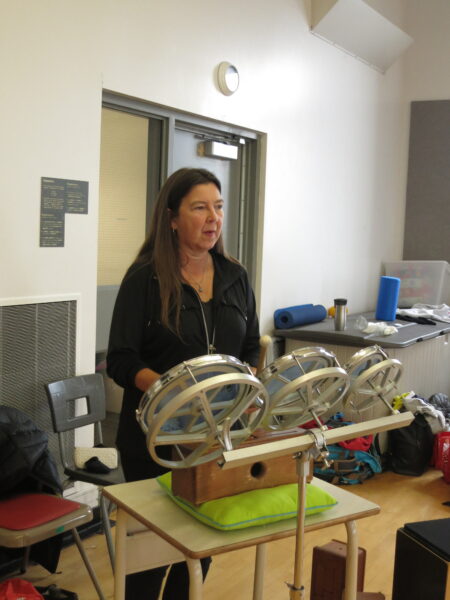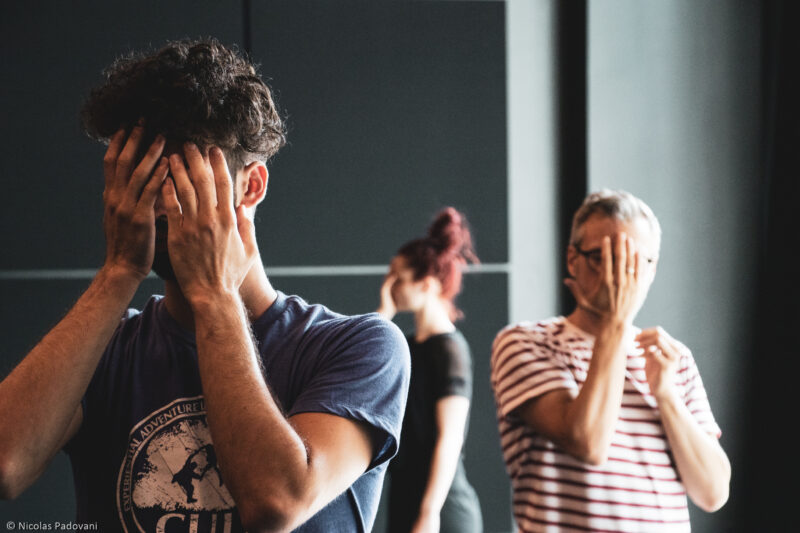Article
Territoires Partagés – texte de Kelly Keenan (en anglais)
The Movement Educator’s Forum
Kelly Keenan
The Movement Educator’s Forum (MEF) is an annual week long initiative I, Kelly, instigated 6 years ago. Over the course of one week, the MEF invites at least 5 teachers across fields of practice to lead a movement class followed by a facilitator and peer lead discussion and experiential lab. As a long time member of the Axis Syllabus (AS) community, the event was initially inspired by the AS teacher’s laboratory which assembles AS teachers together to exchange, reflect, advance and re-inspire their teaching practices. The MEF reaches out to movement educator’s from an expanded field of movement and teaching practices.
Each year a theme is chosen as a fulcrum for practice-based exchange which foregrounds and valorizes kinaesthetic interpretation, rather than solely linguistic. I have had the experience of speaking about contemporary dance technique on panel discussions amongst other dance teachers and while it often sounds that we are talking about similar things, the particularities and differences unfurl in practice. Each unique training enacts a new body, through ‘trying it on’ in practice, we may better articulate the differences from an experiential perspective.
To date, the MEF has brought together 30+ teachers from different fields of practice including Contemporary Dance, Continuum, Argentinian Tango, Osteopathy, Body Mind Centering, Voice & Improvisation, The Franklin Method, Chiropractics, Gyrotonics, Occupational Therapy, Choreography, Feldenkrais, Contact Improvisation, Axis Syllabus among many others. The event routinely gathers movement educators who have never been in studio or conversation together. As a facilitator, this has been extremely heart warming because it gets right to the crux of the event.
Montreal’s contemporary dance community and training ecology is impressively diverse. Organizations like Studio 303, Danse à la Carte, le Regroupement Québécoise de la Danse, Circuit-Est, Nous Somme l’été, Par B.L.eux plus other initiatives and centers (eg/ yoga, martial arts, personal training etc…) are resources for continued practice for movement enthusiasts, dancing and performing artists. Studio 303 alone programs 40 weeks of workshops seasonally which only begins to illustrate the vaste palette of practices available to movement enthusiasts and performing artists in the city.
The MEF acknowledges and celebrates that local movement educators across fields of practice are collectively ‘forming’ Montreal’s moving, dancing and performing community. However, within the community it is not common practice for movement educators to regularly engage in each other’s practice. The MEF aspires to cultivate a space where we can learn from each others practices within the local network of movement educators. In doing so we might demystify what the teacher in the studio next door, upstairs or across town is practicing and teaching. I hold this valuable for plenty of reasons, namely by cultivating relationships, fostering community and building a stronger sense of purpose and meaningfulness in one’s own teaching work by gaining a broader understanding of how we are each participating in the greater movement training ecology. The MEF is not seeking to come to a consensus on how or what to teach, but moreover, to acknowledge and celebrate our differences and how they hang together and apart within the greater Montreal dance community.
The MEF is committed to provide an affordable, practical and manageable (time-wise) platform for movement educators to gather and exchange and is dedicated to the inclusivity of diverse approaches. The event has been made possible with the co-operation of Studio 303 and a rotating peer team.
This year’s topic, Metaphor and Movement, has been greatly inspired by the artistic practice, research and teaching of my friend and colleague Kevin O’Connor, who co-facilitated the event with me. Kevin is a multi-disciplinary artist and currently finishing a Phd in performance studies at UC Davis. His research examines anatomies, body performance capacities, interventions and imaginations in relation to science studies.
THANK-YOU’S to Studio 303 & Peer Organizational Team of Laurel Koop, Ashlea Watkin, Kira Kirsch, Ruth Douthwright, Kerwin Barrington and Kevin O’Connor




